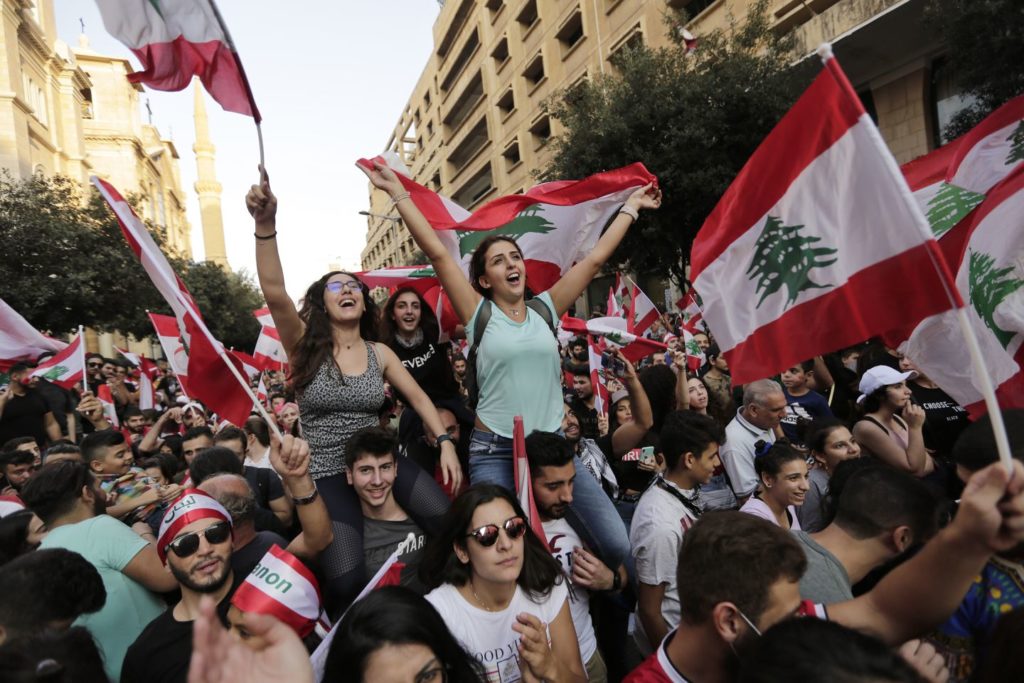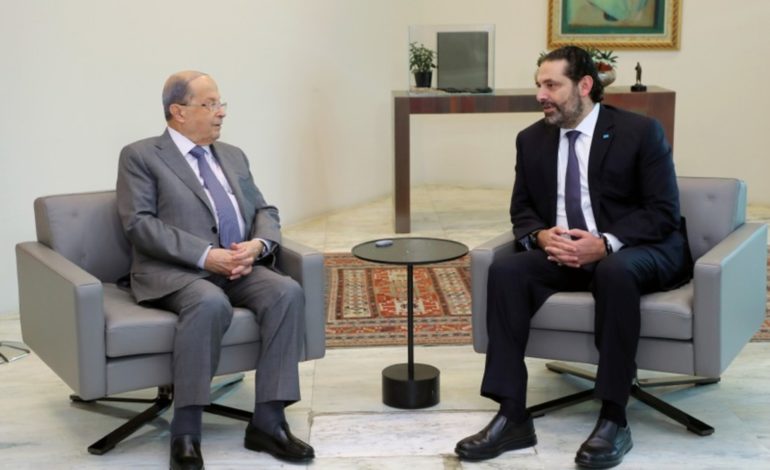BEIRUT — Lebanon’s outgoing Prime Minister Saad al-Hariri met President Michel Aoun on Thursday without announcing progress towards forming a new government, and banking sources said most financial transfers out of the country remained blocked.
Already facing the worst economic crisis since the 1975-90 civil war, Lebanon has been pitched deeper into turmoil since Oct. 17 by a wave of protests against the ruling elite that led Hariri to resign as prime minister on Oct 29.
Banks reopened on Friday after a two-week closure, but customers have encountered restrictions on transfers abroad and withdrawals of hard currency.
A banking source said that generally all international transfers were still being blocked bar some exceptions such as foreign mortgage payments and tuition fees. A second banking source said restrictions had gotten tighter.
Hariri has been holding closed-door meetings with other factions in the outgoing coalition cabinet over how the next government should be formed, but there have been no signs of movement towards an agreement.

Lebanese uprising continue
Parliament Speaker Nabih Berri said he wanted Hariri to be nominated as prime minister again. Under Lebanon’s sectarian power-sharing system, the prime minister is a Sunni Muslim, the president a Maronite Christian and the speaker a Shi’a.
Aoun has yet to formally start consultations with lawmakers over nominating the new prime minister. The presidency said Aoun and Hariri discussed contacts aimed at solving “the current government situation.” The protesters have called for a new government that would exclude leaders of Lebanon’s traditional sectarian political blocs. But politicians are still wrangling over its shape.
Hariri has held two meetings this week with Gebran Bassil, a son-in-law of Aoun. Both Aoun and Berri are allies of the powerful Hezbollah Party.
Druze leader Walid Jumblatt, who had two ministers in the outgoing cabinet, said on Twitter that despite the protests, Hariri and Bassil “were meeting on how to improve and beautify” a political deal they struck in 2016.
Politician Samy Gemayel, whose Kataeb party was not part of the outgoing cabinet, said the main players had not understood the depth of the protest movement.
“I don’t see any change in the behavior of any of the main actors after everything that happened,” he told Reuters. “They are still trying to form a government where they can all be happy, and this is not what the people are asking for.”
The unrest erupted three weeks ago after a build-up of anger at rising costs of living and political leaders accused of steering the country toward collapse.
The economy is choked by one of the world’s largest debt burdens. Growth, low for years, is now around zero. Capital inflows vital to financing budget and trade deficits have been slowing for years, making foreign currency harder to obtain.






Leave a Reply